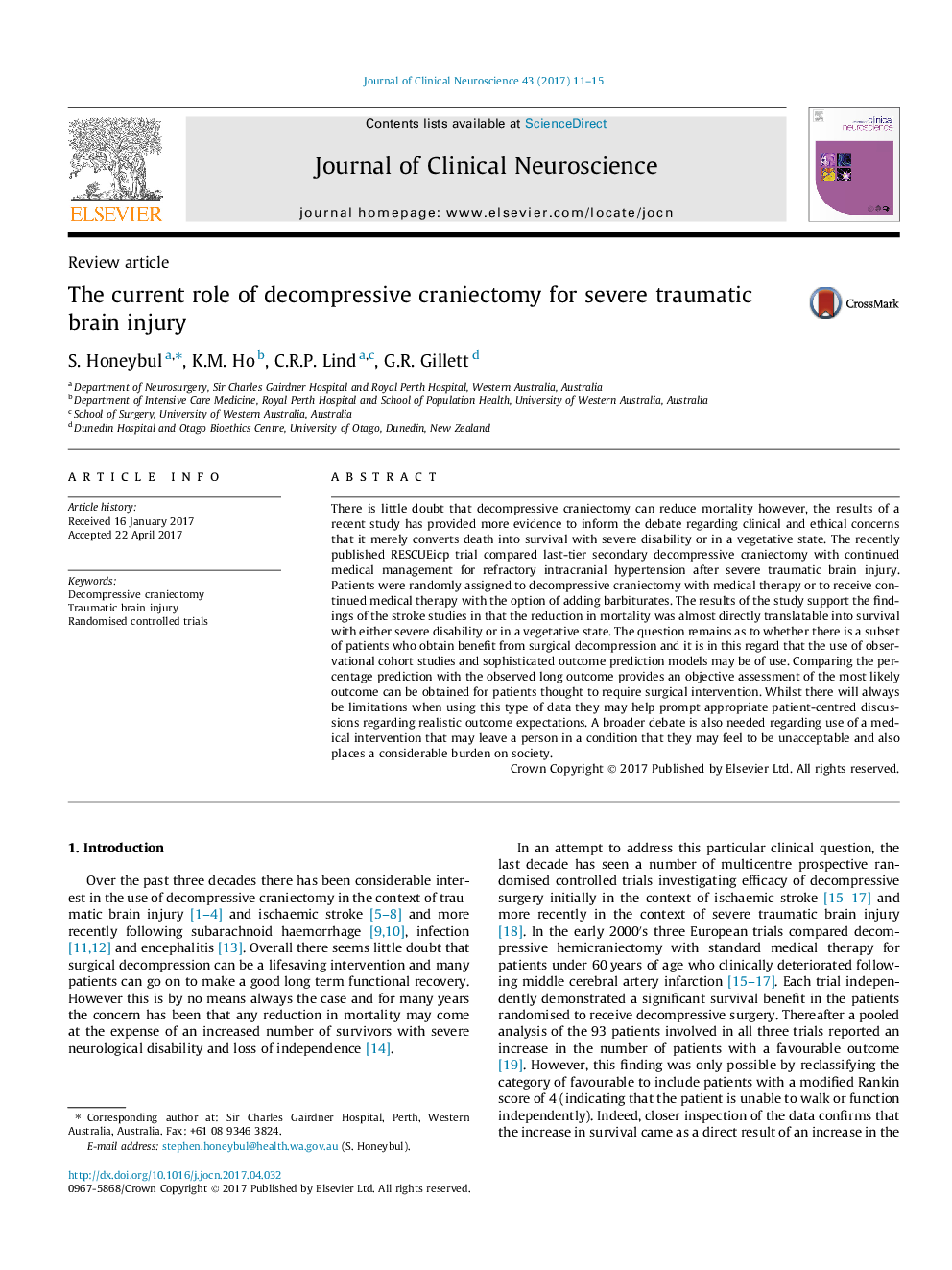| کد مقاله | کد نشریه | سال انتشار | مقاله انگلیسی | نسخه تمام متن |
|---|---|---|---|---|
| 5629624 | 1580273 | 2017 | 5 صفحه PDF | دانلود رایگان |
- The role of decompressive craniectomy for traumatic brain injury remains controversial.
- It is undoubtedly a lifesaving intervention.
- However, reduction in mortality is translated into survival with severe disability.
- A broader ethical debate is now needed regarding ongoing use of the procedure.
There is little doubt that decompressive craniectomy can reduce mortality however, the results of a recent study has provided more evidence to inform the debate regarding clinical and ethical concerns that it merely converts death into survival with severe disability or in a vegetative state. The recently published RESCUEicp trial compared last-tier secondary decompressive craniectomy with continued medical management for refractory intracranial hypertension after severe traumatic brain injury. Patients were randomly assigned to decompressive craniectomy with medical therapy or to receive continued medical therapy with the option of adding barbiturates. The results of the study support the findings of the stroke studies in that the reduction in mortality was almost directly translatable into survival with either severe disability or in a vegetative state. The question remains as to whether there is a subset of patients who obtain benefit from surgical decompression and it is in this regard that the use of observational cohort studies and sophisticated outcome prediction models may be of use. Comparing the percentage prediction with the observed long outcome provides an objective assessment of the most likely outcome can be obtained for patients thought to require surgical intervention. Whilst there will always be limitations when using this type of data they may help prompt appropriate patient-centred discussions regarding realistic outcome expectations. A broader debate is also needed regarding use of a medical intervention that may leave a person in a condition that they may feel to be unacceptable and also places a considerable burden on society.
Journal: Journal of Clinical Neuroscience - Volume 43, September 2017, Pages 11-15
